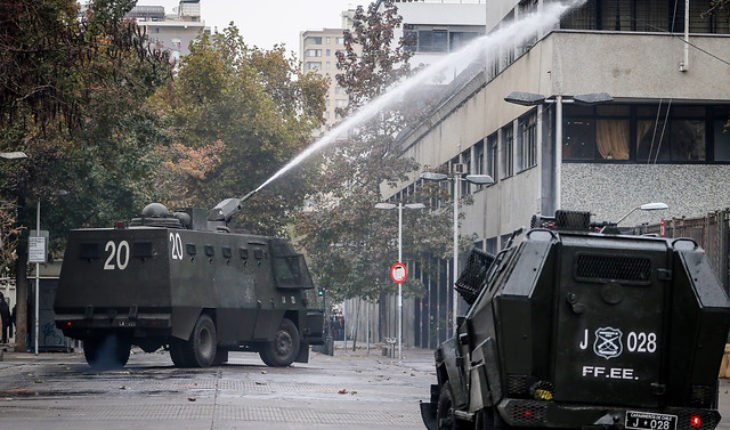Last Thursday 16 May the Ministry of Education made public the results of the SIMCE 2018, in conjunction with Indicators of Personal and Social development. Within these indicators are two interesting elements to relieve: first, 1 in 3 young people argue that democracy is not the best form of government possible, and second, 1 in 3 students said that violence is an effective method to achieve That one wants.
The answers to these results are multiple, cross many areas of knowledge and are very interrelated. The present column does not seek in any case to solve these problems, but if, broaden the magnifying glass, to realize that this is not only an educational problem, or of behavior of the young people, but rather, a structural question. We are attending the progressive collapse of the social contract of the Chilean state.
Democracy, says Nolberto Bobbio, is a set of rules and procedures, within which the main, but not the only, is respect for the majority decision. Just at this point, our country has recorded problems. Citizens do not participate in politics, they feel oblivious to democracy because they perceive that being part of democratic processes is unsuccessful because they do not generate any real change, given that the democratic institutionality seeks to maintain the Stability, inhibiting transformation, rather than propitiating and enhancing the majority will.
From an institutional perspective, Chilean democracy supports its foundations in two pillars. First, the existence of supermajorities, with the objective that any major constitutional change should be the result of consensus among political forces, since it is almost impossible for a sector alone to reach the majority necessary to carry out the Changes you intend. And secondly, the Constitutional Court, which has as its precautionary function the constitutionality of the laws that are approved and, in practice, operates as a third chamber, safeguarding “institutional stability”.
Together with the institutional immobilism that characterizes our country, for quite a few years, we also witness a collapse in the trust of our representative institutions. Low confidence in democratic institutions implies a questioning of the regime along with a loss of legitimacy. As will be dazzled in the graphic present later, from the year 2011 until today, the confidence comes falling in a strong and sustained way in the time this has consolidated the increasing number of criticisms to the Chilean democracy.
In Chile, the confidence in the parties as they show the data has always been low, with fluctuations, but low at the end (never exceeded 35%). As for Congress, from 1995 to 2016, confidence in Congress has had permanent fluctuations, but particularly from the year 2011 there is a permanent collapse in the confidence that citizens have on Congress. Finally, the case of trust in government is the most striking. The year 2009, the government had exhibited a 65% confidence on the part of the respondents, but 2 years later (2011) confidence falls to 37%.
By putting the data on the table, the results that throw the Personal and Social development index seem pretty logical, right? And is that, if very few people trust democratic institutions as drivers of a better life, why should young people do it? It is understandable that young people desencanten from a system that does not show them a better future than their parents had, if we add to this, that they grew up and were educated in a deeply violent school system, to support violence seems natural , and is that, bad that bad, for them it is a more reliable way to manage the change that what to proved to be the same democracy.
Today we are witnessing the deterioration of the social contract by the Chilean state, and that is, the idea that citizens freely delegate their sovereignty to a collective whole, with the conviction that living together implies progress for the community as a whole, is under questioning. The Chilean model and its proposed “progress” is worn out, the citizens, and particularly the younger ones (as the results of the indicators of personal and social development expose) are disenchanted and frustrated by the future that awaits them, the Political system has not been able to give an adequate response to such frustration, thus generating, on the one hand the decline in support of democracy by the citizenry and on the other the search for alternative mechanisms of dispute resolution that the Democracy could not solve, for example, violence. It is imperative then to move towards a transformative democratic system, the manager of change, that makes people feel that their participation matters and that the State accompanies them in achieving their own goals. In other words, we need to formulate a new social contract.
translated from Spanish: The deterioration of the social contract in Chile: Students do not trust democracy
May 27, 2019 |





